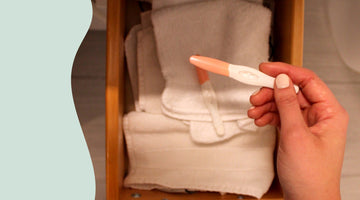How Winx Health (formerly known as Stix) co-founder Jamie Norwood prioritizes her mental health

Now more than ever, it’s important to address mental health in the startup community. Recent research has found a concerning trend that entrepreneurs are 50% more likely to report suffering from a mental health issue. These conditions harm founders and put the company at risk too. I talked to Winx Health (formerly known as Stix) co-founder Jamie Norwood to get a better understanding of how she handles the stresses of being a business owner along with her strategies for maintaining her mental health.
R: Jamie, what does mental health mean to you, in your own words?
J: I think of mental health as my inner world. My outer world is how I present myself to others, the work I produce, etc. My inner world, on the other hand, is how I feel and how I react to things. When my inner world feels turbulent, it’s really tough to be present in my outer world.
R: As a busy co-founder, what are some things you do to prioritize mental wellness throughout the week?
J: Therapy, journaling, and taking time to just be with my thoughts. Of course, these don’t all happen every week — life gets in the way more often than I’d like to admit. I’m working on being as consistent as possible with making time for my own mental health.
R: How have you benefited from dedicating time and energy to mental health?
J: Weekly therapy appointments are key for me. Therapy is a consistent time and space to sort through my thoughts. It helps that there is someone on the other side holding me accountable. It allows me to be more present during work and in my relationships.
R: Do you think that the start-up community does enough to prioritize mental health?
J: Yes and no! Cynthia and I have surrounded ourselves with a community of founders who really prioritize mental health and self care. However, a big part of the startup community can glamourize “the hustle” and working 24/7. That kind of work style is not sustainable and can be really damaging to mental health.
R: Is there a stigma? And if so, how do you navigate that?
J: As a founder, you’re expected to juggle a lot and be an “expert” at a lot of different things. It can be really tough to admit when I’m struggling, so I do think there’s a stigma. I’m really lucky to have a trusting and supportive relationship with my co-founder where we can talk freely about mental health. It would be impossible to go at it alone.
R: What would you say to a founder who is struggling to prioritize their mental health?
J: What you’re doing is really hard. You can work and work and keep working, and still never do enough. There will always be more to do, so you need to be intentional about drawing boundaries and carving out time for yourself. It will be more productive in the long run if you take time to breathe. You’ve got this, and you're doing great.
Keep Reading

How the SAVE Act is impacting married women
Apr 2

I don't want to get pregnant under this administration, what do I do?
Mar 19

Six weeks is too soon: the reality of abortion bans
Feb 24








